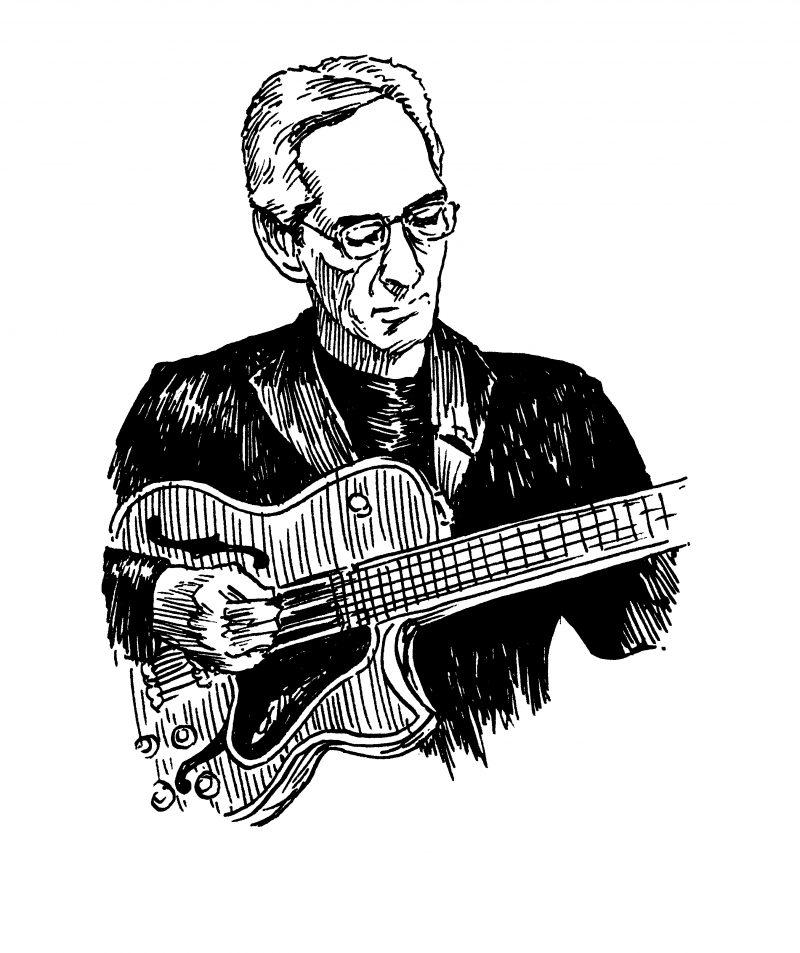Pat Martino is among the fabled jazz guitarists of the past two generations. His influence sweeps across musical borders, inspiring musicians as disparate as Carlos Santana and Metallica’s Kirk Hammett. Since his debut as a twenty-two-year-old bandleader on the album El Hombre (1967), Martino has always remained a guitarist’s guitarist, one of the instrument’s war-baby pioneers—with, say, John McLaughlin or George Benson—players who forced themselves, and the guitar, into the vanguard of jazz’s electric revolution.
Born Pat Azzara in Philadelphia in 1944, Martino was raised as a kind of musical prodigy. His father, Carmen (Mickey) Azzara, an amateur singer and guitarist, took him to hear music as a young boy, frequenting the city’s jazz matinees, meeting many of the famous traveling musicians and the elite jazzmen in their South Philadelphia neighborhood. At fifteen, Martino quit school and moved to Harlem, where he soon became a regular in a variety of organ-centered groups, a staple of uptown clubs in those days. As a salute to his father, he took Mickey’s stage name, Martino, before recording his first album. Gradually, the arc of Pat’s career took shape, as he staked his spot, first, on the soul-jazz scene, and then with a variety of jazz hybrids, from international music to fusion to psychedelia.
You have reached your article limit
Sign up for a digital subscription and continue reading all new issues, plus our entire archives, for just $1.50/month.
Already a subscriber? Sign in





